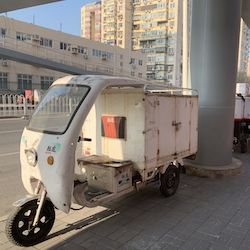
This lecture explores and elucidates – under an era of digitalization and an advanced mode of capitalism or planned capitalism – how culture is increasingly a question of logistics, chiefly manifested through infrastructure. Today, nations’ global powers are exercised through digital (invisible) and physical (visible) infrastructure that transmits, conveys, and extends the reach of goods, as well as the culture that is embodied in goods and adheres to such infrastructure. This lecture attempts not only to reconceptualize culture and power in our globalizing world but also to develop a new perspective to understand China and its power. At stake here is neither American hard power –through drones and military bases – nor its soft power—through Hollywood (e.g., Marvel or Disneyland in Shanghai)—but instead, its infrastructure power. In China,Taobao (the Chinese version of Amazon) has been making use of such infrastructure to seamlessly deliver commodities and transmit power, whereas, globally, infrastructure built for the “One Belt, One Road” initiative vividly exemplifies this emerging phenomenon of cultural logistics.
Buffett Visiting Professor Anthony Fung is Professor in the School of Journalism and Communication at the Chinese University of Hong Kong. He is also Director of the Global Studies Program and Co-Director of Hong Kong Institute of Asia Pacific Studies. His research interests focus on popular culture, cultural/ creative industries and policy, andyouth and cultural studies. He is editor-in-chief of Global Media and China, and associate editor of International Journal of Cultural Studies. His recent books include Youth Cultures in China (2016 under Polity Press), Global Game Industries and Cultural Policy (2016 under Palgrave Macmillan), and Culture as Logistics (forthcoming under SAGE).
Reception to follow.
Audience
- Faculty/Staff
- Student
- Public
- Post Docs/Docs
- Graduate Students
Interest
- Global/Multicultural